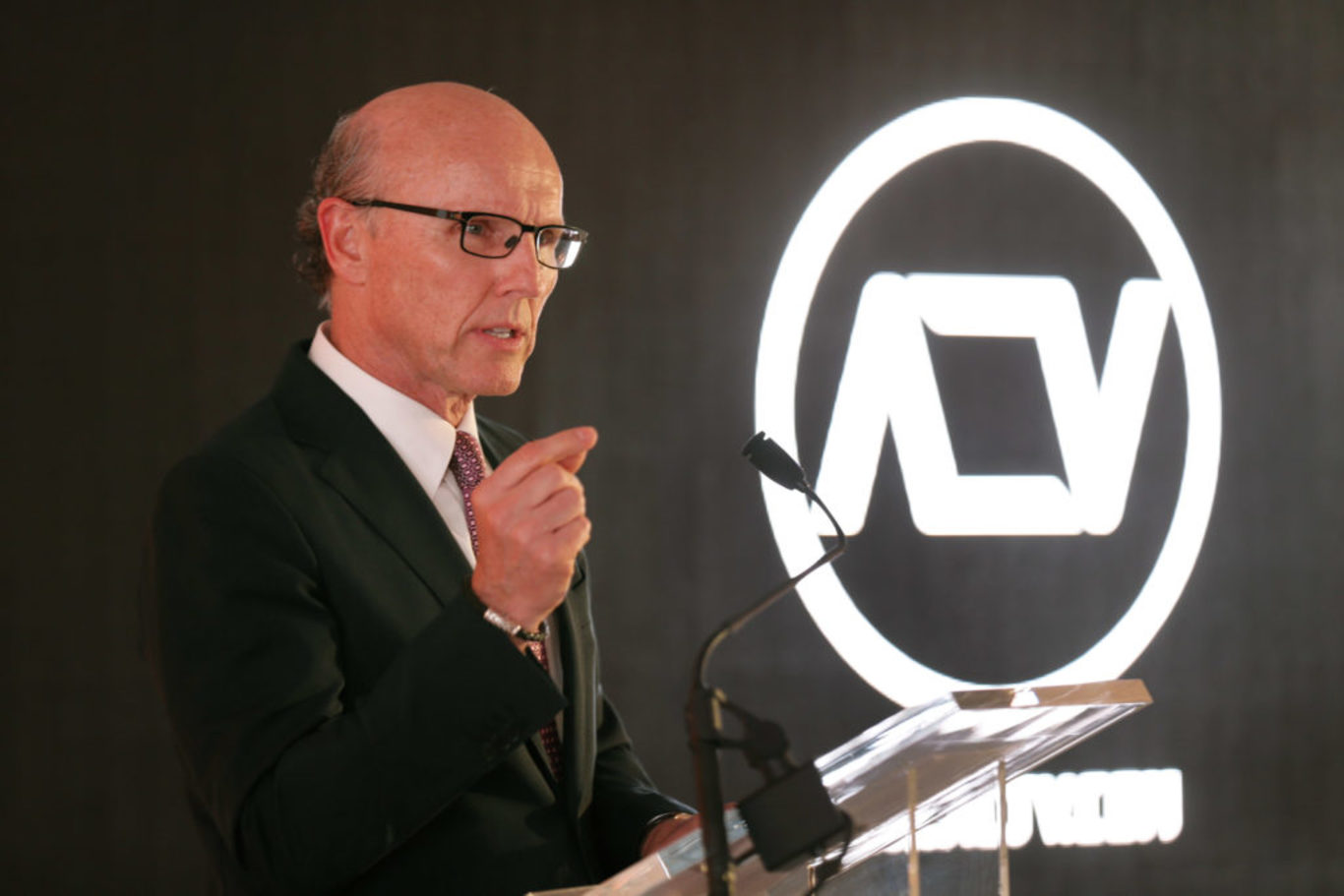'We say Eir lost, not that they dropped out': The National Broadband Plan's last man standing
Enet chairman David McCourt talks about why he’s determined to see the project succeed.
THERE HAVE BEEN many twists and turns in the National Broadband Plan bidding war, and as the last man standing in the process, Enet’s David McCourt has seen them all.
Between false starts and rivals falling by the wayside, the scheme to bring speedy broadband to 450,000 homes and businesses in rural areas has been littered with drama since it was announced six years ago.
Eir dropped the latest bombshell in January when it withdrew from the race for the contract.
That left Enet, a wholesale broadband provider backed and chaired by the US-based McCourt, as the sole bidder for the contract after Vodafone-ESB joint venture Siro pulled out of the tender process last year.
Even though bidders have dropped like flies, McCourt hasn’t changed his mind about the viability of the project.
The telecoms entrepreneur, who is worth an estimated $750 million, said he just wants to see contracts signed and work under way.
“I want more than anything for this to be successful. I don’t care what other people do,” he tells Fora.
“It’s irrelevant to me what (competitors) are doing. What we need to do is stay focused on winning and stay focused on executing on a very ambitious project.”
He adds that he wasn’t surprised to see Eir withdraw from the bidding process, but he doesn’t like it when people use the terminology that the telecoms firm “dropped out”.
At the time of its withdrawal, the former State telecoms company, which was recently sold to a consortium led by a French billionaire, said “significant commercial issues and complexity within the tender process” forced the firm to abandon its bid.
“We look at it as people lost, we don’t look at it as people dropped out,” McCourt says.
“In the US, when we have a presidential election we start with 15 people and as they realise they can’t win, they drop out.
“When people drop out it’s because they have come to the conclusion that they can’t win. These people aren’t fools, and they didn’t get into the process not understanding it.”
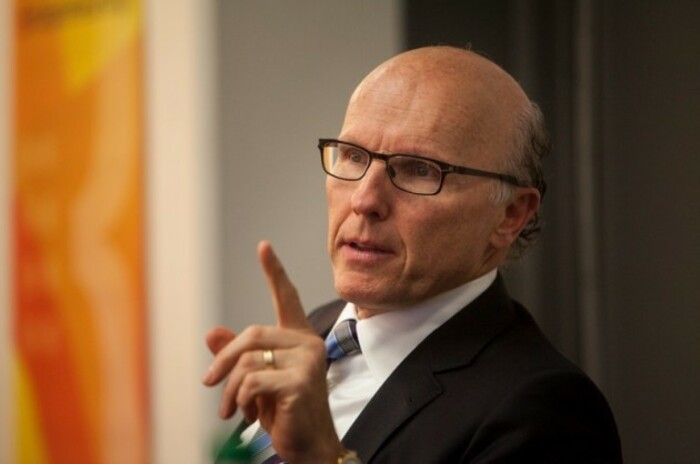 David McCourt
David McCourt
Drama
However Eir’s withdrawal from the bidding for the State broadband scheme hasn’t been the only major news involving Enet in recent months.
Less than four weeks after the bombshell, Enet’s long-standing boss Conal Henry announced on Twitter that it was time to “hand over the reins” to the company, with little further explanation of the reasons behind the move.
The change came as a surprise as it followed less that a year after a massive investment in Enet that valued the company at €200 million, not to mention the impending National Broadband Plan decision.
According to McCourt, it was company restructuring that led to the management upheaval.
“I don’t want to get into it other than to say we made the organisational changes proactively,” he says.
“It was just time to bring up young guys. We promoted from within; Bartley McElroy, (the new Enet CEO), he had been with the company for 10 years.
“If he hadn’t been promoted he would probably have moved on, and there were some other people who needed to get promoted.”
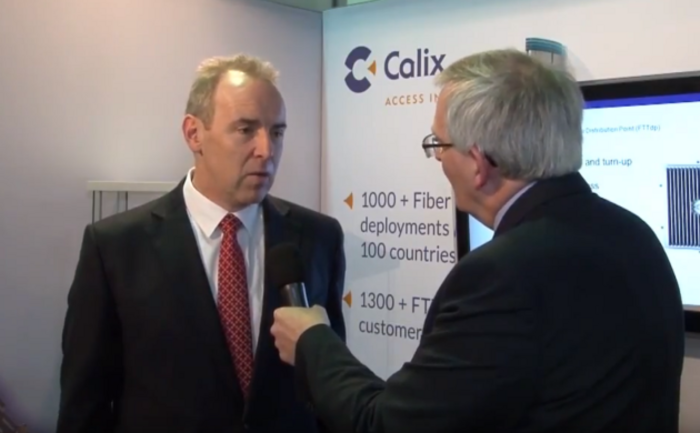 Bartley McElroy (left)
Bartley McElroy (left)
Case study
McCourt spoke to Fora ahead of the launch of his book, Total Rethink, next week. One notable attendee expected at the event will be the man overseeing the bidding process for the National Broadband Plan tender, Communications Minister Denis Naughten.
While McCourt says he doesn’t expect to discuss the yet-to-be concluded broadband tender process with Naughten at the event, there is an official meeting scheduled for the following day.
“I think publicly they said it would be done by the fall and we’re working ahead assuming that’s going to happen.”
He adds that rural broadband connectivity remains an issue in many countries, and he hopes Enet can use Ireland as a case study to show other countries what can be done.
“I believe broadband is a basic human right. We would love to build the business here so that we can export our know how to other countries.
“This isn’t an isolated problem in Ireland. It’s everywhere. Very few countries have solved this, very few have gotten it right, and my hat goes off to the Irish government for taking on such an ambitious project.
“It’s a very ballsy project to take on and they’re pulling it off.”
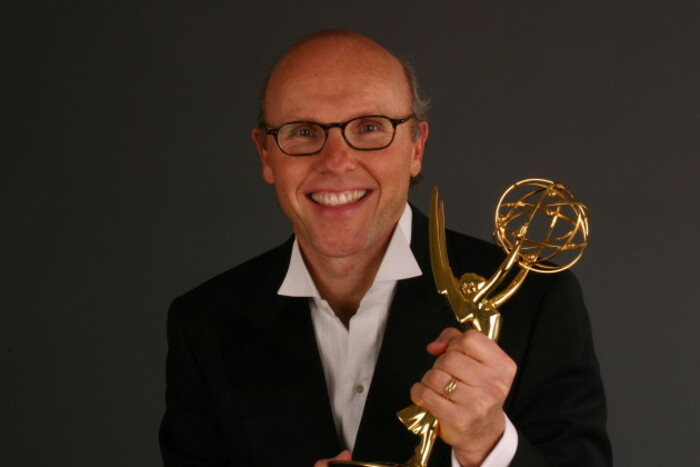
Passing on lessons
McCourt’s book focuses on the lessons he has learned during 35 years at the helm of his own businesses. But while the theme is personal, he was determined not to make the work a vanity project.
“Most people want to write a book, and it’s a look-at-me book about how smart I am. I had no interest in that. I wanted to write a book based on my own experience and give a road map for people who need to rethink their own lives.”
Based on the Irish-American entrepreneur’s status as one of the US’s most successful telecoms industry figures, his message is likely to find an eager audience. McCourt says he hopes the book would help people tap into a different way of thinking about business.
“The days of incremental change are over. Since the industrial revolution through to Jack Welch’s tenure at General Electric, that was the way to go. Now it is all about blowing up the model.
“You hear over and over about how the music industry is dead, yet Spotify has a $27 billion market cap. You hear movie ticket sales are flat, yet Netflix has a $145 billion market cap. These guys have rethought the model.
“It’s not a problem with the industry, it’s a problem with how they are approaching it. If you just have utilitarian business methods, you will come up short.”
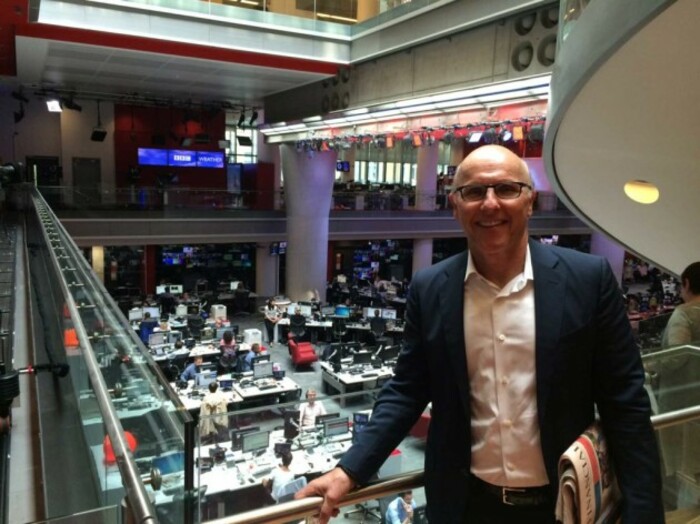
Teaching entrepreneurship
The approach to business that McCourt writes about in his book is one he would love to see taught in universities and schools. While he says you can’t turn everyone into entrepreneurs, the same thought processes can be applied to everyday life.
“In my view, business people always find a way to make money. They are like mice looking for a piece of cheese. They’ll find a scrap somewhere.
“But there are other people who have less of an interest in money but still want to make revolutionary change in their lives or sector.
“Diplomats, nurses, doctors, lawyers, teachers, policemen, there are all sorts of people who may be in a career for something more rewarding than just money, but they still want to think entrepreneurially.
“What I hope to do and wish schools would do is to help people think different. You’re not going to make an entrepreneur, but you can help them have the confidence to think differently.”
Sign up to our newsletter to receive a regular digest of Fora’s top articles delivered to your inbox.
